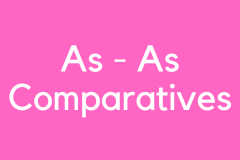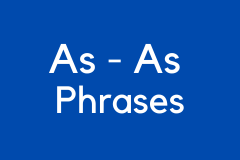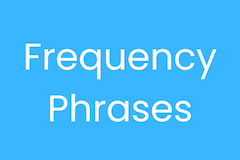Comparatives with "As ... As"
Listen to four conversations using the grammar point.
Answer the following questions about the interview.
Comparatives with "As ... As"
Point 1:
The words ‘as — as’ can go before and after an
adjective to compare two things.
- My new car is not as fast as my last car.
- This new job is just as boring as my last job.
- My French is not as good as my Spanish.
- Thai grammar is not as hard as Japanese grammar.
Point 2:
The phrase ‘not as — as’ is commonly used to
show one thing is inferior to another item.
- I am not as tall as my dad. My dad is taller than me.
- Japan is not as big as Brazil. Brazil is bigger.
- Money is not as important as health. Health is more important.
- Winter is not as warm as Summer. Summer is warmer.
Point 3:
The phrase ‘as — as’ shows two things have equal
status or quality. It does not mean one item is
better.
- My new house is as big as my last house.
- My mom is about as tall as my sister.
- My city is about as big as the capitol.
- The test was as hard as the last one.
Point 4:
The same patterns apply to comparing adverbs.
- I do not earn as much as I did at my last job.
- I don’t speak as fluently as I did before.
- My new car does not steer as easily as my last car did.
- I don’t play the piano as well as I used to.
Point 5:
Me vs I am - With pronouns, there are two ways
to make a comparison in spoken English.
- He is as tall as me.
He is as tall as I am. - I am not as lucky as her.
I am not as lucky as she is. - They are not as fortunate as us.
They are not as fortunate as we are.
Point 5:
My dad is vs. My dad - In spoken English,
speakers can add the auxiliary verb or modal,
but it is not necessary.
- I am not as tall as my dad.
I am not as tall as my dad is. - I cannot cook as well as my mom.
I cannot cook as well as my mom can. - I do not play tennis as well as my sister.
I do not play tennis as well as my sister does.
Main Text Goes Here










